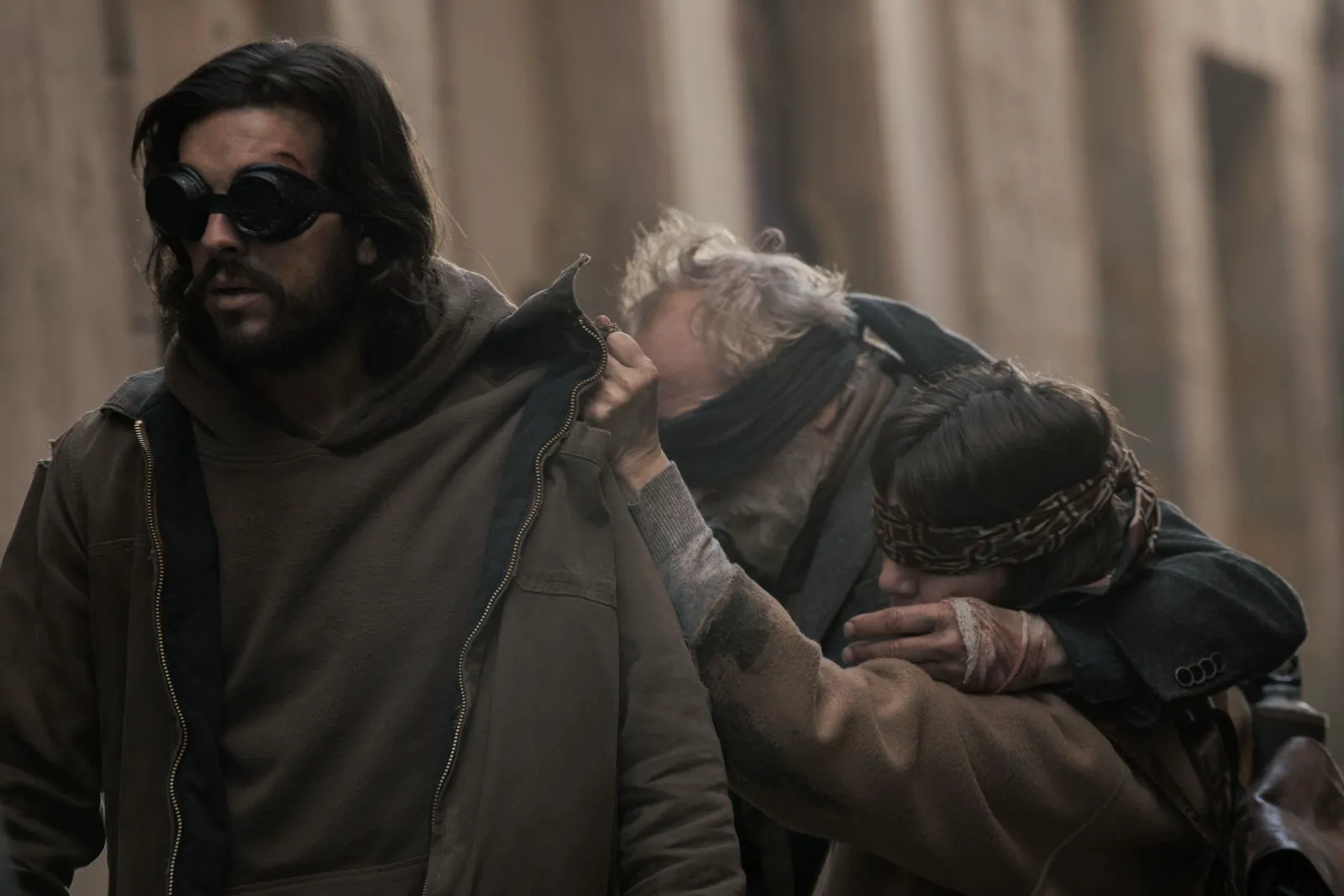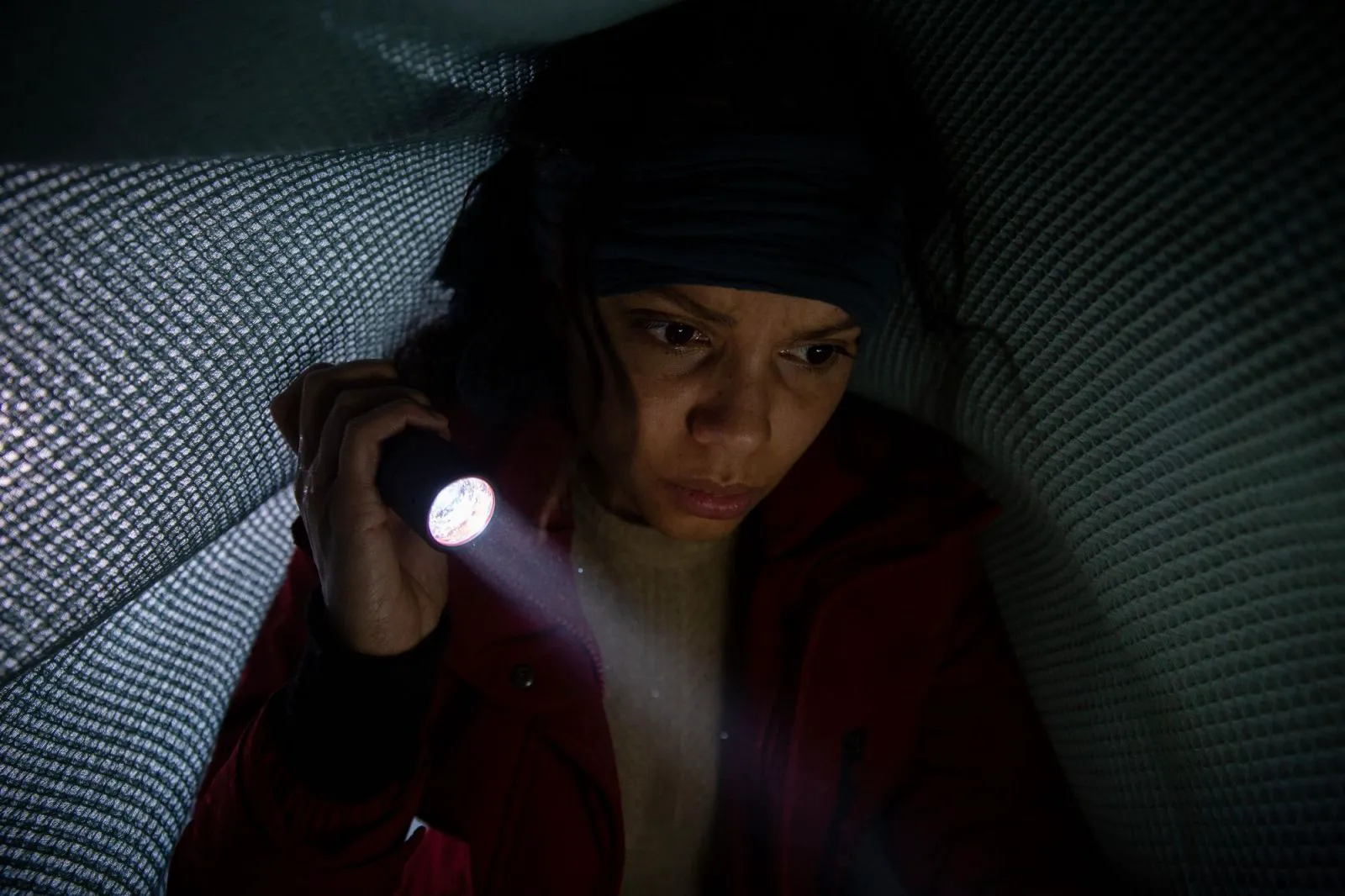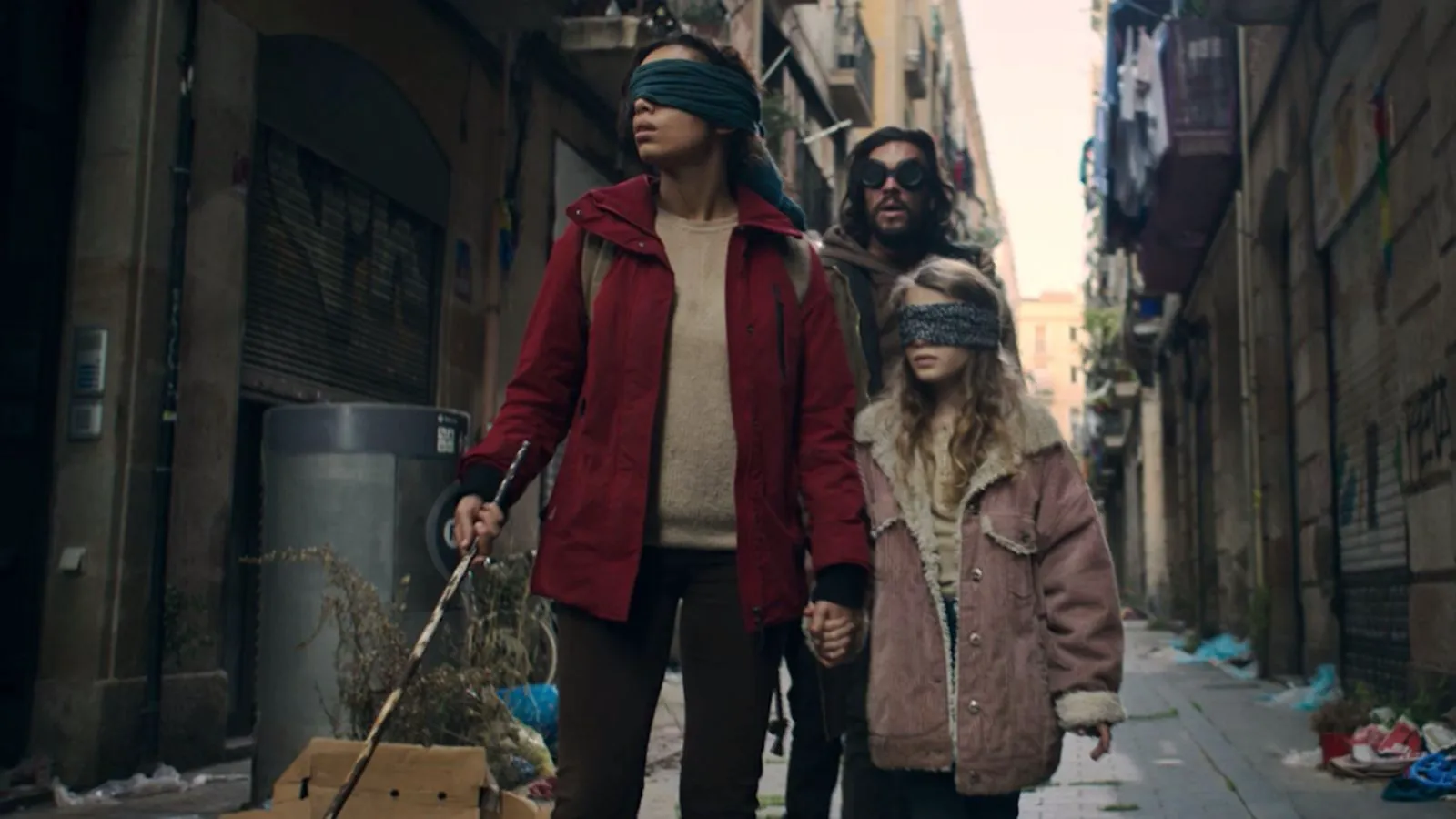In 2018, the post-apocalyptic thriller “Bird Box,” based on Josh Malerman’s best-selling novel of the same name, became a true sensation. The story of a world engulfed in a suicide epidemic went viral due to an unusual plot convention: all the characters in the film were forced to navigate the streets blindfolded. This was how people avoided deadly encounters with strange, incorporeal beings that induced a desire for self-harm. Despite the solid direction by Oscar-winning Susanne Bier (“After the Wedding”) and the efforts of screenwriter Eric Heisserer (“Arrival”), “Bird Box” wasn’t exactly groundbreaking. The main focus was on a rather cheap intrigue with the monster, whose arc ultimately led nowhere. The Spanish sequel to “Bird Box,” released five years after the first installment, is a loose Netflix adaptation of Malerman’s story. In essence, “Barcelona” is a classic thriller for the streaming platform’s catalog, its lack of necessity compensated for by the hype surrounding the original.
Navigating a Blind World: Bird Box Barcelona
The main characters of the film are Spanish engineer Sebastián (Mario Casas) and his daughter Anna (Alejandra Howard), who wander the devastated streets of Barcelona, which, like the rest of the globe, has been affected by mass suicides. Sebastián carefully blindfolds himself and his daughter, quietly mourns his deceased wife, and constantly encounters major troubles. As it turns out, the unknown monster not only kills people but also recruits fanatical servants: the survivors – usually psychopaths – remove blindfolds from others and literally force them to face inevitable death.

Mario Casas as Sebastián in a still from “Bird Box: Barcelona”
Production Value and Creative Shift
The extent to which the sequel/spin-off of “Bird Box” was economized is evident not only in the poor production (viewers might get the deceptive impression that the entire film was shot in three locations) but also in the weak production team. Bier and Heisserer have been replaced by Àlex and David Pastor, known only for the horror series “The Head.” And Sandra Bullock has been replaced by Spanish film star Mario Casas (“Three Meters Above the Sky”). “Barcelona” predictably follows the formula of all successful sequels – expanding the original universe by adding new plot elements. The theme of invisible evil, capable of blinding and sending one on the path to self-destruction, takes a backseat. Instead, the Pastors focus on the metaphor of experiencing collective trauma: the sleep of reason begets its own, no less terrifying monsters.

Georgina Campbell as Claire in a still from “Bird Box: Barcelona”
Echoes of the Past, Shadows of the Future
In the first “Bird Box,” Sandra Bullock’s character evolved into a savior mother, while in the second, Mario Casas emphasizes the pain points of fatherhood. Sebastián and Anna walk through the suspiciously quiet alleys of Barcelona, diligently copying the characters from the sensational “The Last of Us.” The Pastors constantly juggle flashbacks and close-ups, but, alas, they fail to achieve a sense of real drama. What’s troubling isn’t so much the derivative nature of everything happening as the sterility of the feelings and emotions of the main on-screen pair, who, unfortunately, can’t reach the heights of Bella Ramsey and Pedro Pascal.

Mario Casas as Sebastián in a still from “Bird Box: Barcelona”
Unresolved Themes and Lingering Questions
Like the original film, the sequel to “Bird Box” has several ambitious overarching themes (fanaticism of faith, social stratification, life in delusion), each of which remains hanging in the air. Only death turns out to be permanent, which, as we know, is too beautiful to refuse. However, the authors predictably fail to capitalize on the thesis that made the first film famous.